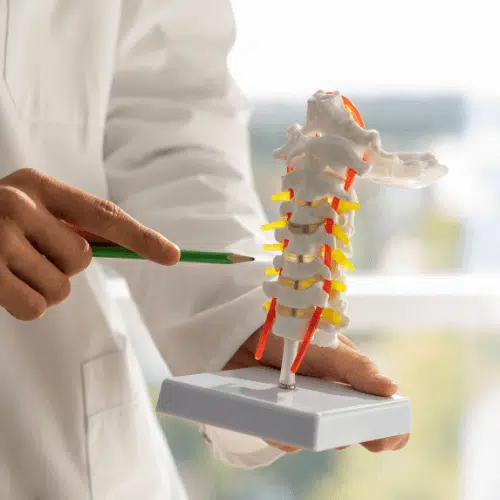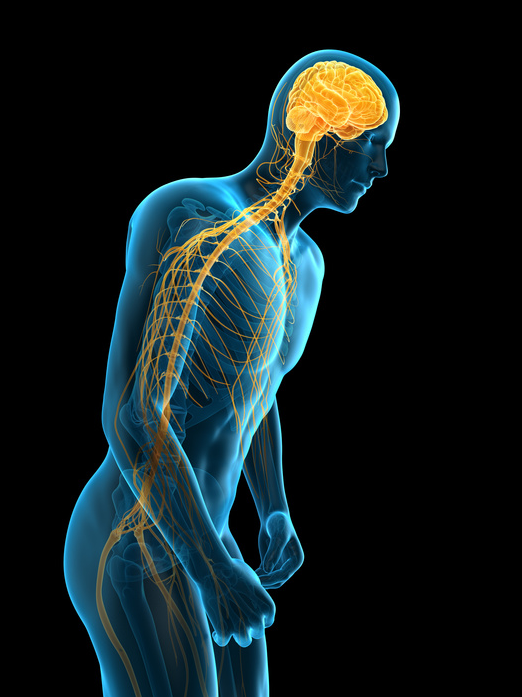Exactly How Insurance coverage Functions with the Best Spine Surgeons in St Louis MO
Checking Out the Factors Behind Needing Spinal Column Surgery for Different Problems
The requirement for back surgery emerges from a variety of conditions that can seriously hinder a person's lifestyle. Generally encountered problems such as degenerative disc condition, herniated discs, and spinal stenosis commonly manifest as chronic pain and incapacitating signs. In most cases, when conventional therapy options show inefficient, people might locate themselves contemplating surgical intervention. Comprehending the certain indications that warrant surgical consideration is important for both individuals and doctor. The implications of these conditions extend far past prompt discomfort alleviation, inviting additional exam right into the intricacies of spine health administration.
Common Back Problems
Usual spine conditions incorporate a variety of disorders that impact the vertebral column and its connected structures. Among the most prevalent problems are degenerative disc illness, herniated discs, spinal constriction, and spondylolisthesis. These problems can bring about considerable pain and functional constraints, impacting the lifestyle.
Degenerative disc condition occurs when the intervertebral discs lose hydration and elasticity, leading to reduced disc elevation and raised spine instability. Herniated discs arise when the internal gel-like material of a disc bulges or leakages through its external layer, usually compressing neighboring nerves. Spine stenosis is defined by the narrowing of the spine canal, which can lead to push on the spinal cable and nerves. Spondylolisthesis involves the variation of one vertebra over another, possibly causing nerve compression and discomfort.
Various other conditions such as scoliosis, defined by an unusual side curvature of the back, and osteoarthritis, which affects the facet joints, also add to spine-related concerns. Each of these problems might necessitate differing therapy approaches, consisting of conservative administration or medical treatment, depending on the severity and effect on the person's daily activities.
Signs Showing Surgical Treatment
Signs and symptoms that might show the demand for spine surgery can arise from the various spine conditions discussed previously. Patients frequently experience consistent pain that does not enhance with conventional treatments, such as physical therapy or medication. This pain can show up as local discomfort in the back or radiate to the limbs, suggesting nerve participation.
In addition, numbness, tingling, or weak point in the arms or legs can signify nerve compression, which might require surgical treatment to prevent more neurological degeneration. An additional important signs and symptom is loss of bladder or bowel control, commonly a sign of cauda equina disorder, a medical emergency situation needing immediate surgical analysis.
Sometimes, people may also report substantial difficulty in doing everyday activities due to instability in the spinal column or debilitating discomfort. These practical limitations, in addition to dynamic symptoms, necessitate a thorough evaluation by a back specialist.
Ultimately, when conservative steps fail to minimize signs and lifestyle is seriously impacted, surgery may be considered to bring back function, eliminate pain, and protect against lasting complications. It is vital that people experiencing these signs look for professional medical guidance immediately.

Non-Surgical Therapy Choices
Numerous non-surgical treatment alternatives are offered for individuals experiencing spine-related issues, aiming to reduce pain and boost capability without the requirement for intrusive treatments. These therapies can be tailored to the details problem and intensity of signs and symptoms.
Physical treatment is often a first-line method, concentrating on reinforcing core muscles, boosting adaptability, and improving overall spinal health. Manual treatment strategies, such as chiropractic care changes, can likewise provide relief by realigning the back and lowering tension.
Drugs, including non-steroidal anti-inflammatory medicines (NSAIDs) and muscular tissue relaxants, might be recommended to take care of discomfort and inflammation. Additionally, corticosteroid shots can deliver targeted relief to affected areas, especially for conditions like herniated discs or back stenosis.

Alternate treatments, such as acupuncture and massage treatment, have actually gotten appeal for their possible to decrease discomfort and promote healing. Way of life adjustments, including look at here weight monitoring and ergonomic adjustments, play an important function in long-term spine health.
For some individuals, spine decompression therapy or transcutaneous electrical nerve stimulation (10S) may supply alleviation by decreasing pressure on back nerves and boosting nerve feature, respectively. Jointly, these non-surgical choices provide a detailed strategy to taking care of spine-related conditions.

Benefits of Back Surgical Procedure
One of the key benefits of spine surgical treatment is the capacity for considerable discomfort relief. Conditions such as herniated discs, spine constriction, and degenerative disc disease can lead to incapacitating discomfort that may not respond to conventional therapies.
Furthermore, spinal column surgery can restore functionality and improve lifestyle. Several patients experience improved mobility and minimized restrictions in everyday activities adhering to successful surgical procedures. This remediation of function is critical for individuals seeking to go back to function, participate in leisure activities, or merely appreciate daily tasks without pain.
Additionally, spine surgery can prevent more problems associated with untreated spinal conditions. By addressing concerns proactively, clients might avoid a lot more serious health issue that might occur from progression of their back condition. Overall, the advantages of spine surgical treatment prolong beyond discomfort relief, incorporating boosted wheelchair, improved quality of life, and the prevention of future problems, making it an important alternative for numerous individuals dealing with substantial spine-related difficulties.

Healing and Recovery Refine
The recuperation and rehab procedure following spine surgical treatment is crucial for making certain ideal results and boosting the overall quality of life for clients. Reliable healing begins quickly after the treatment, concentrating on discomfort monitoring, flexibility, and injury treatment - Website best spine surgeons in st louis mo. Doctor generally recommend a combination of physical therapy, medicine, and progressive return to day-to-day activities to facilitate healing
Patients are frequently advised to adhere to an organized rehab program customized to their particular surgical procedure and specific requirements. This might consist of targeted workouts to strengthen the core and back muscular tissues, improve adaptability, and bring back performance. Adherence to the suggested rehab protocol is crucial, as it can dramatically reduce the risk of difficulties and advertise much faster healing.
It is also important for individuals to maintain open communication with their healthcare group throughout the recuperation process. Normal follow-up visits allow for the monitoring of development, adjustments to rehabilitation plans, and resolving any issues that may arise. Inevitably, a thorough healing and rehabilitation technique not just aids in physical recuperation but likewise supports psychological health, encouraging clients to reclaim freedom and return to their recommended activities with self-confidence.
Conclusion
Finally, comprehending the reasons for spine surgery is crucial in attending to incapacitating problems that affect quality of life. best spine surgeons in st louis mo. Common concerns such as degenerative disc disease, herniated discs, and back stenosis demand careful assessment of symptoms and therapy see options. While non-surgical methods might provide relief, surgical intervention often ends up being essential when conventional approaches stop working. Inevitably, spine surgical procedure can bring back function and enhance general well-being, emphasizing the importance of timely assessment and treatment for damaged people.
The need for back surgical treatment develops from a range of problems that can significantly impair an individual's quality of life. The ramifications of these problems prolong much beyond immediate discomfort alleviation, welcoming further evaluation right into the intricacies of back health monitoring.
Signs and symptoms that may show the requirement for back surgical treatment can arise from the different back problems talked about formerly.Additionally, spine surgical treatment can stop more issues connected with neglected back conditions.In final thought, recognizing the reasons for spinal column surgery is necessary in resolving debilitating conditions that influence top quality of life.